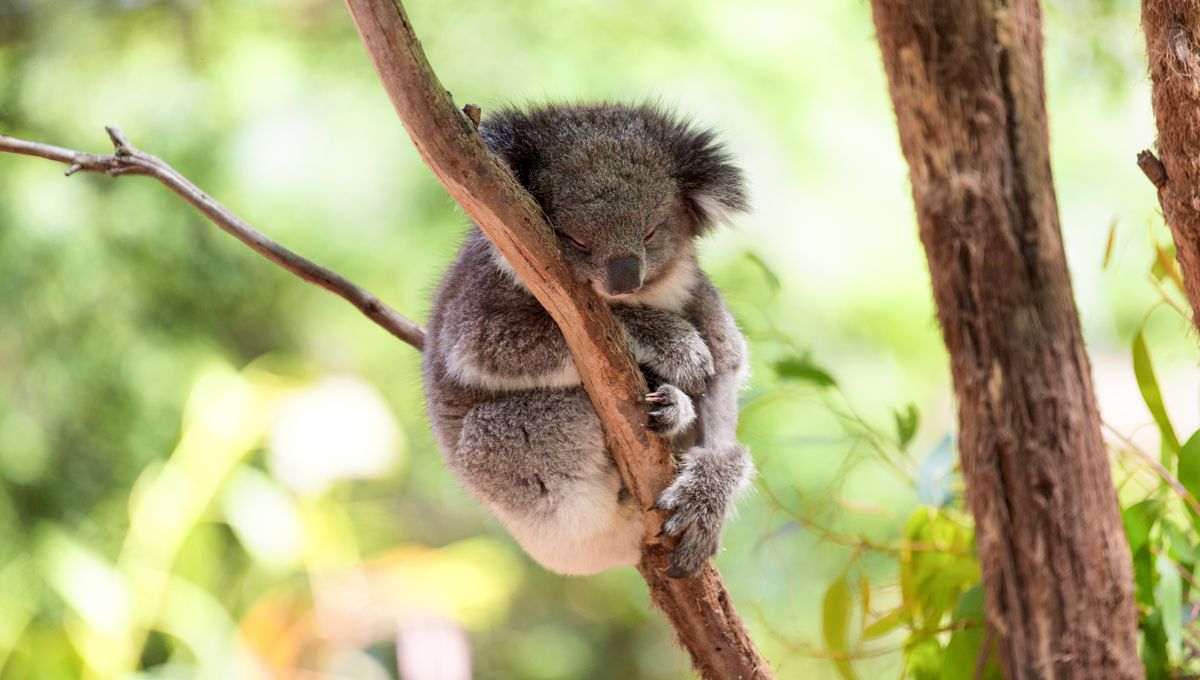
Think eight hours a night is a decent amount of sleep? Best believe that’s nothing compared to some other animals – but which is the sleepiest of them all?
Koalas
ADVERTISEMENT
The ultimate champions in conking out are most likely the koalas – these Australian icons can sleep for a whopping 18 to 22 hours per day (living the dream for real). The reason why they spend so much of the day sleeping revolves around their diet.
Koalas eat around 500 grams (17.6 ounces) of leaves per day – primarily eucalyptus – which might sound like a hefty salad, but it doesn’t provide much in the way of energy. In fact, the leaves that they consume on average only comprise about 5 percent sugars and starches. Even if you eat a lot, it’s not going to be enough to keep you up and running all day.
Then there’s the fact that eucalyptus leaves are toxic – if humans ingested as much eucalyptus as koalas do, we’d promptly be killed off by it. Koalas, on the other hand, have a digestive system that’s capable of dealing with the toxins in eucalyptus; a long, coiled-up part of this system called the caecum contains specialized bacteria responsible for this.
The downside to this digestive process is that it requires a lot of energy. Add that to a low-energy diet, and sleeping for the vast majority of the day allows koalas to conserve as much energy as possible.
When koalas do emerge from their slumber and move about, it’s usually at night. However, their extended napping sesh might also be interrupted during the day if something disturbs them (rude), or they get too hot or cold, prompting them to wake up and move elsewhere.
Fire ant workers
Worker ants of the fire ant species Solenopsis invicta only sleep for around 4 hours and 48 minutes per day – but hear us out. They might not be on the level of koalas, but these ants still have a very enviable snooze-related skill: power napping, and to a particularly impressive degree.
ADVERTISEMENT
A 2009 study examining the sleep/wake cycles of S. invicta found that the worker ants averaged a mammoth 253 sleep episodes per day, each lasting just over a minute. That kind of sleeping pattern sounds positively hellish to a human, but in an ant colony, short and sharp naps appear to serve an important purpose.
“The large number and short naps by workers means that jobs in the nest never go unattended,” study co-author Deby Cassill told BBC Earth News at the time. “There is always a worker available when the need arises. When work is slow, workers sleep more.”
The queens, on the other hand, were found to sleep for around 6 minutes at a time on average, totaling about 9 hours of sleep per day. Perks of being the monarch, we suppose.
Source Link: Snoozy Marsupials And Power-Napping Ants: Which Animal Sleeps The Most?